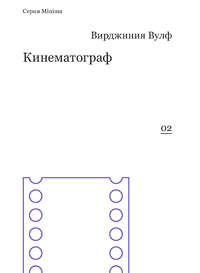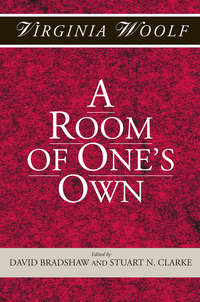 полная версия
полная версияNight and Day
Denham was not altogether popular either in his office or among his family. He was too positive, at this stage of his career, as to what was right and what wrong, too proud of his self-control, and, as is natural in the case of persons not altogether happy or well suited in their conditions, too apt to prove the folly of contentment, if he found any one who confessed to that weakness. In the office his rather ostentatious efficiency annoyed those who took their own work more lightly, and, if they foretold his advancement, it was not altogether sympathetically. Indeed, he appeared to be rather a hard and self-sufficient young man, with a queer temper, and manners that were uncompromisingly abrupt, who was consumed with a desire to get on in the world, which was natural, these critics thought, in a man of no means, but not engaging.
The young men in the office had a perfect right to these opinions, because Denham showed no particular desire for their friendship. He liked them well enough, but shut them up in that compartment of life which was devoted to work. Hitherto, indeed, he had found little difficulty in arranging his life as methodically as he arranged his expenditure, but about this time he began to encounter experiences which were not so easy to classify. Mary Datchet had begun this confusion two years ago by bursting into laughter at some remark of his, almost the first time they met. She could not explain why it was. She thought him quite astonishingly odd. When he knew her well enough to tell her how he spent Monday and Wednesday and Saturday, she was still more amused; she laughed till he laughed, too, without knowing why. It seemed to her very odd that he should know as much about breeding bulldogs as any man in England; that he had a collection of wild flowers found near London; and his weekly visit to old Miss Trotter at Ealing, who was an authority upon the science of Heraldry, never failed to excite her laughter. She wanted to know everything, even the kind of cake which the old lady supplied on these occasions; and their summer excursions to churches in the neighborhood of London for the purpose of taking rubbings of the brasses became most important festivals, from the interest she took in them. In six months she knew more about his odd friends and hobbies than his own brothers and sisters knew, after living with him all his life; and Ralph found this very pleasant, though disordering, for his own view of himself had always been profoundly serious.
Certainly it was very pleasant to be with Mary Datchet and to become, directly the door was shut, quite a different sort of person, eccentric and lovable, with scarcely any likeness to the self most people knew. He became less serious, and rather less dictatorial at home, for he was apt to hear Mary laughing at him, and telling him, as she was fond of doing, that he knew nothing at all about anything. She made him, also, take an interest in public questions, for which she had a natural liking; and was in process of turning him from Tory to Radical, after a course of public meetings, which began by boring him acutely, and ended by exciting him even more than they excited her.
But he was reserved; when ideas started up in his mind, he divided them automatically into those he could discuss with Mary, and those he must keep for himself. She knew this and it interested her, for she was accustomed to find young men very ready to talk about themselves, and had come to listen to them as one listens to children, without any thought of herself. But with Ralph, she had very little of this maternal feeling, and, in consequence, a much keener sense of her own individuality.
Late one afternoon Ralph stepped along the Strand to an interview with a lawyer upon business. The afternoon light was almost over, and already streams of greenish and yellowish artificial light were being poured into an atmosphere which, in country lanes, would now have been soft with the smoke of wood fires; and on both sides of the road the shop windows were full of sparkling chains and highly polished leather cases, which stood upon shelves made of thick plate-glass. None of these different objects was seen separately by Denham, but from all of them he drew an impression of stir and cheerfulness. Thus it came about that he saw Katharine Hilbery coming towards him, and looked straight at her, as if she were only an illustration of the argument that was going forward in his mind. In this spirit he noticed the rather set expression in her eyes, and the slight, half-conscious movement of her lips, which, together with her height and the distinction of her dress, made her look as if the scurrying crowd impeded her, and her direction were different from theirs. He noticed this calmly; but suddenly, as he passed her, his hands and knees began to tremble, and his heart beat painfully. She did not see him, and went on repeating to herself some lines which had stuck to her memory: “It’s life that matters, nothing but life – the process of discovering – the everlasting and perpetual process, not the discovery itself at all.” Thus occupied, she did not see Denham, and he had not the courage to stop her. But immediately the whole scene in the Strand wore that curious look of order and purpose which is imparted to the most heterogeneous things when music sounds; and so pleasant was this impression that he was very glad that he had not stopped her, after all. It grew slowly fainter, but lasted until he stood outside the barrister’s chambers.
When his interview with the barrister was over, it was too late to go back to the office. His sight of Katharine had put him queerly out of tune for a domestic evening. Where should he go? To walk through the streets of London until he came to Katharine’s house, to look up at the windows and fancy her within, seemed to him possible for a moment; and then he rejected the plan almost with a blush as, with a curious division of consciousness, one plucks a flower sentimentally and throws it away, with a blush, when it is actually picked. No, he would go and see Mary Datchet. By this time she would be back from her work.
To see Ralph appear unexpectedly in her room threw Mary for a second off her balance. She had been cleaning knives in her little scullery, and when she had let him in she went back again, and turned on the cold-water tap to its fullest volume, and then turned it off again. “Now,” she thought to herself, as she screwed it tight, “I’m not going to let these silly ideas come into my head… Don’t you think Mr. Asquith deserves to be hanged?” she called back into the sitting-room, and when she joined him, drying her hands, she began to tell him about the latest evasion on the part of the Government with respect to the Women’s Suffrage Bill. Ralph did not want to talk about politics, but he could not help respecting Mary for taking such an interest in public questions. He looked at her as she leant forward, poking the fire, and expressing herself very clearly in phrases which bore distantly the taint of the platform, and he thought, “How absurd Mary would think me if she knew that I almost made up my mind to walk all the way to Chelsea in order to look at Katharine’s windows. She wouldn’t understand it, but I like her very much as she is.”
For some time they discussed what the women had better do; and as Ralph became genuinely interested in the question, Mary unconsciously let her attention wander, and a great desire came over her to talk to Ralph about her own feelings; or, at any rate, about something personal, so that she might see what he felt for her; but she resisted this wish. But she could not prevent him from feeling her lack of interest in what he was saying, and gradually they both became silent. One thought after another came up in Ralph’s mind, but they were all, in some way, connected with Katharine, or with vague feelings of romance and adventure such as she inspired. But he could not talk to Mary about such thoughts; and he pitied her for knowing nothing of what he was feeling. “Here,” he thought, “is where we differ from women; they have no sense of romance.”
“Well, Mary,” he said at length, “why don’t you say something amusing?”
His tone was certainly provoking, but, as a general rule, Mary was not easily provoked. This evening, however, she replied rather sharply:
“Because I’ve got nothing amusing to say, I suppose.”
Ralph thought for a moment, and then remarked:
“You work too hard. I don’t mean your health,” he added, as she laughed scornfully, “I mean that you seem to me to be getting wrapped up in your work.”
“And is that a bad thing?” she asked, shading her eyes with her hand.
“I think it is,” he returned abruptly.
“But only a week ago you were saying the opposite.” Her tone was defiant, but she became curiously depressed. Ralph did not perceive it, and took this opportunity of lecturing her, and expressing his latest views upon the proper conduct of life. She listened, but her main impression was that he had been meeting some one who had influenced him. He was telling her that she ought to read more, and to see that there were other points of view as deserving of attention as her own. Naturally, having last seen him as he left the office in company with Katharine, she attributed the change to her; it was likely that Katharine, on leaving the scene which she had so clearly despised, had pronounced some such criticism, or suggested it by her own attitude. But she knew that Ralph would never admit that he had been influenced by anybody.
“You don’t read enough, Mary,” he was saying. “You ought to read more poetry.”
It was true that Mary’s reading had been rather limited to such works as she needed to know for the sake of examinations; and her time for reading in London was very little. For some reason, no one likes to be told that they do not read enough poetry, but her resentment was only visible in the way she changed the position of her hands, and in the fixed look in her eyes. And then she thought to herself, “I’m behaving exactly as I said I wouldn’t behave,” whereupon she relaxed all her muscles and said, in her reasonable way:
“Tell me what I ought to read, then.”
Ralph had unconsciously been irritated by Mary, and he now delivered himself of a few names of great poets which were the text for a discourse upon the imperfection of Mary’s character and way of life.
“You live with your inferiors,” he said, warming unreasonably, as he knew, to his text. “And you get into a groove because, on the whole, it’s rather a pleasant groove. And you tend to forget what you’re there for. You’ve the feminine habit of making much of details. You don’t see when things matter and when they don’t. And that’s what’s the ruin of all these organizations. That’s why the Suffragists have never done anything all these years. What’s the point of drawing-room meetings and bazaars? You want to have ideas, Mary; get hold of something big; never mind making mistakes, but don’t niggle. Why don’t you throw it all up for a year, and travel? – see something of the world. Don’t be content to live with half a dozen people in a backwater all your life. But you won’t,” he concluded.
“I’ve rather come to that way of thinking myself – about myself, I mean,” said Mary, surprising him by her acquiescence. “I should like to go somewhere far away.”
For a moment they were both silent. Ralph then said:
“But look here, Mary, you haven’t been taking this seriously, have you?” His irritation was spent, and the depression, which she could not keep out of her voice, made him feel suddenly with remorse that he had been hurting her.
“You won’t go away, will you?” he asked. And as she said nothing, he added, “Oh no, don’t go away.”
“I don’t know exactly what I mean to do,” she replied. She hovered on the verge of some discussion of her plans, but she received no encouragement. He fell into one of his queer silences, which seemed to Mary, in spite of all her precautions, to have reference to what she also could not prevent herself from thinking about – their feeling for each other and their relationship. She felt that the two lines of thought bored their way in long, parallel tunnels which came very close indeed, but never ran into each other.
When he had gone, and he left her without breaking his silence more than was needed to wish her good night, she sat on for a time, reviewing what he had said. If love is a devastating fire which melts the whole being into one mountain torrent, Mary was no more in love with Denham than she was in love with her poker or her tongs. But probably these extreme passions are very rare, and the state of mind thus depicted belongs to the very last stages of love, when the power to resist has been eaten away, week by week or day by day. Like most intelligent people, Mary was something of an egoist, to the extent, that is, of attaching great importance to what she felt, and she was by nature enough of a moralist to like to make certain, from time to time, that her feelings were creditable to her. When Ralph left her she thought over her state of mind, and came to the conclusion that it would be a good thing to learn a language – say Italian or German. She then went to a drawer, which she had to unlock, and took from it certain deeply scored manuscript pages. She read them through, looking up from her reading every now and then and thinking very intently for a few seconds about Ralph. She did her best to verify all the qualities in him which gave rise to emotions in her; and persuaded herself that she accounted reasonably for them all. Then she looked back again at her manuscript, and decided that to write grammatical English prose is the hardest thing in the world. But she thought about herself a great deal more than she thought about grammatical English prose or about Ralph Denham, and it may therefore be disputed whether she was in love, or, if so, to which branch of the family her passion belonged.
CHAPTER XI
“It’s life that matters, nothing but life – the process of discovering, the everlasting and perpetual process,” said Katharine, as she passed under the archway, and so into the wide space of King’s Bench Walk, “not the discovery itself at all.” She spoke the last words looking up at Rodney’s windows, which were a semilucent red color, in her honor, as she knew. He had asked her to tea with him. But she was in a mood when it is almost physically disagreeable to interrupt the stride of one’s thought, and she walked up and down two or three times under the trees before approaching his staircase. She liked getting hold of some book which neither her father or mother had read, and keeping it to herself, and gnawing its contents in privacy, and pondering the meaning without sharing her thoughts with any one, or having to decide whether the book was a good one or a bad one. This evening she had twisted the words of Dostoevsky to suit her mood – a fatalistic mood – to proclaim that the process of discovery was life, and that, presumably, the nature of one’s goal mattered not at all. She sat down for a moment upon one of the seats; felt herself carried along in the swirl of many things; decided, in her sudden way, that it was time to heave all this thinking overboard, and rose, leaving a fishmonger’s basket on the seat behind her. Two minutes later her rap sounded with authority upon Rodney’s door.
“Well, William,” she said, “I’m afraid I’m late.”
It was true, but he was so glad to see her that he forgot his annoyance. He had been occupied for over an hour in making things ready for her, and he now had his reward in seeing her look right and left, as she slipped her cloak from her shoulders, with evident satisfaction, although she said nothing. He had seen that the fire burnt well; jam-pots were on the table, tin covers shone in the fender, and the shabby comfort of the room was extreme. He was dressed in his old crimson dressing-gown, which was faded irregularly, and had bright new patches on it, like the paler grass which one finds on lifting a stone. He made the tea, and Katharine drew off her gloves, and crossed her legs with a gesture that was rather masculine in its ease. Nor did they talk much until they were smoking cigarettes over the fire, having placed their teacups upon the floor between them.
They had not met since they had exchanged letters about their relationship. Katharine’s answer to his protestation had been short and sensible. Half a sheet of notepaper contained the whole of it, for she merely had to say that she was not in love with him, and so could not marry him, but their friendship would continue, she hoped, unchanged. She had added a postscript in which she stated, “I like your sonnet very much.”
So far as William was concerned, this appearance of ease was assumed. Three times that afternoon he had dressed himself in a tail-coat, and three times he had discarded it for an old dressing-gown; three times he had placed his pearl tie-pin in position, and three times he had removed it again, the little looking-glass in his room being the witness of these changes of mind. The question was, which would Katharine prefer on this particular afternoon in December? He read her note once more, and the postscript about the sonnet settled the matter. Evidently she admired most the poet in him; and as this, on the whole, agreed with his own opinion, he decided to err, if anything, on the side of shabbiness. His demeanor was also regulated with premeditation; he spoke little, and only on impersonal matters; he wished her to realize that in visiting him for the first time alone she was doing nothing remarkable, although, in fact, that was a point about which he was not at all sure.
Certainly Katharine seemed quite unmoved by any disturbing thoughts; and if he had been completely master of himself, he might, indeed, have complained that she was a trifle absent-minded. The ease, the familiarity of the situation alone with Rodney, among teacups and candles, had more effect upon her than was apparent. She asked to look at his books, and then at his pictures. It was while she held photograph from the Greek in her hands that she exclaimed, impulsively, if incongruously:
“My oysters! I had a basket,” she explained, “and I’ve left it somewhere. Uncle Dudley dines with us to-night. What in the world have I done with them?”
She rose and began to wander about the room. William rose also, and stood in front of the fire, muttering, “Oysters, oysters – your basket of oysters!” but though he looked vaguely here and there, as if the oysters might be on the top of the bookshelf, his eyes returned always to Katharine. She drew the curtain and looked out among the scanty leaves of the plane-trees.
“I had them,” she calculated, “in the Strand; I sat on a seat. Well, never mind,” she concluded, turning back into the room abruptly, “I dare say some old creature is enjoying them by this time.”
“I should have thought that you never forgot anything,” William remarked, as they settled down again.
“That’s part of the myth about me, I know,” Katharine replied.
“And I wonder,” William proceeded, with some caution, “what the truth about you is? But I know this sort of thing doesn’t interest you,” he added hastily, with a touch of peevishness.
“No; it doesn’t interest me very much,” she replied candidly.
“What shall we talk about then?” he asked.
She looked rather whimsically round the walls of the room.
“However we start, we end by talking about the same thing – about poetry, I mean. I wonder if you realize, William, that I’ve never read even Shakespeare? It’s rather wonderful how I’ve kept it up all these years.”
“You’ve kept it up for ten years very beautifully, as far as I’m concerned,” he said.
“Ten years? So long as that?”
“And I don’t think it’s always bored you,” he added.
She looked into the fire silently. She could not deny that the surface of her feeling was absolutely unruffled by anything in William’s character; on the contrary, she felt certain that she could deal with whatever turned up. He gave her peace, in which she could think of things that were far removed from what they talked about. Even now, when he sat within a yard of her, how easily her mind ranged hither and thither! Suddenly a picture presented itself before her, without any effort on her part as pictures will, of herself in these very rooms; she had come in from a lecture, and she held a pile of books in her hand, scientific books, and books about mathematics and astronomy which she had mastered. She put them down on the table over there. It was a picture plucked from her life two or three years hence, when she was married to William; but here she checked herself abruptly.
She could not entirely forget William’s presence, because, in spite of his efforts to control himself, his nervousness was apparent. On such occasions his eyes protruded more than ever, and his face had more than ever the appearance of being covered with a thin crackling skin, through which every flush of his volatile blood showed itself instantly. By this time he had shaped so many sentences and rejected them, felt so many impulses and subdued them, that he was a uniform scarlet.
“You may say you don’t read books,” he remarked, “but, all the same, you know about them. Besides, who wants you to be learned? Leave that to the poor devils who’ve got nothing better to do. You – you – ahem! – ”
“Well, then, why don’t you read me something before I go?” said Katharine, looking at her watch.
“Katharine, you’ve only just come! Let me see now, what have I got to show you?” He rose, and stirred about the papers on his table, as if in doubt; he then picked up a manuscript, and after spreading it smoothly upon his knee, he looked up at Katharine suspiciously. He caught her smiling.
“I believe you only ask me to read out of kindness,” he burst out. “Let’s find something else to talk about. Who have you been seeing?”
“I don’t generally ask things out of kindness,” Katharine observed; “however, if you don’t want to read, you needn’t.”
William gave a queer snort of exasperation, and opened his manuscript once more, though he kept his eyes upon her face as he did so. No face could have been graver or more judicial.
“One can trust you, certainly, to say unpleasant things,” he said, smoothing out the page, clearing his throat, and reading half a stanza to himself. “Ahem! The Princess is lost in the wood, and she hears the sound of a horn. (This would all be very pretty on the stage, but I can’t get the effect here.) Anyhow, Sylvano enters, accompanied by the rest of the gentlemen of Gratian’s court. I begin where he soliloquizes.” He jerked his head and began to read.
Although Katharine had just disclaimed any knowledge of literature, she listened attentively. At least, she listened to the first twenty-five lines attentively, and then she frowned. Her attention was only aroused again when Rodney raised his finger – a sign, she knew, that the meter was about to change.
His theory was that every mood has its meter. His mastery of meters was very great; and, if the beauty of a drama depended upon the variety of measures in which the personages speak, Rodney’s plays must have challenged the works of Shakespeare. Katharine’s ignorance of Shakespeare did not prevent her from feeling fairly certain that plays should not produce a sense of chill stupor in the audience, such as overcame her as the lines flowed on, sometimes long and sometimes short, but always delivered with the same lilt of voice, which seemed to nail each line firmly on to the same spot in the hearer’s brain. Still, she reflected, these sorts of skill are almost exclusively masculine; women neither practice them nor know how to value them; and one’s husband’s proficiency in this direction might legitimately increase one’s respect for him, since mystification is no bad basis for respect. No one could doubt that William was a scholar. The reading ended with the finish of the Act; Katharine had prepared a little speech.
“That seems to me extremely well written, William; although, of course, I don’t know enough to criticize in detail.”
“But it’s the skill that strikes you – not the emotion?”
“In a fragment like that, of course, the skill strikes one most.”
“But perhaps – have you time to listen to one more short piece? the scene between the lovers? There’s some real feeling in that, I think. Denham agrees that it’s the best thing I’ve done.”
“You’ve read it to Ralph Denham?” Katharine inquired, with surprise. “He’s a better judge than I am. What did he say?”









